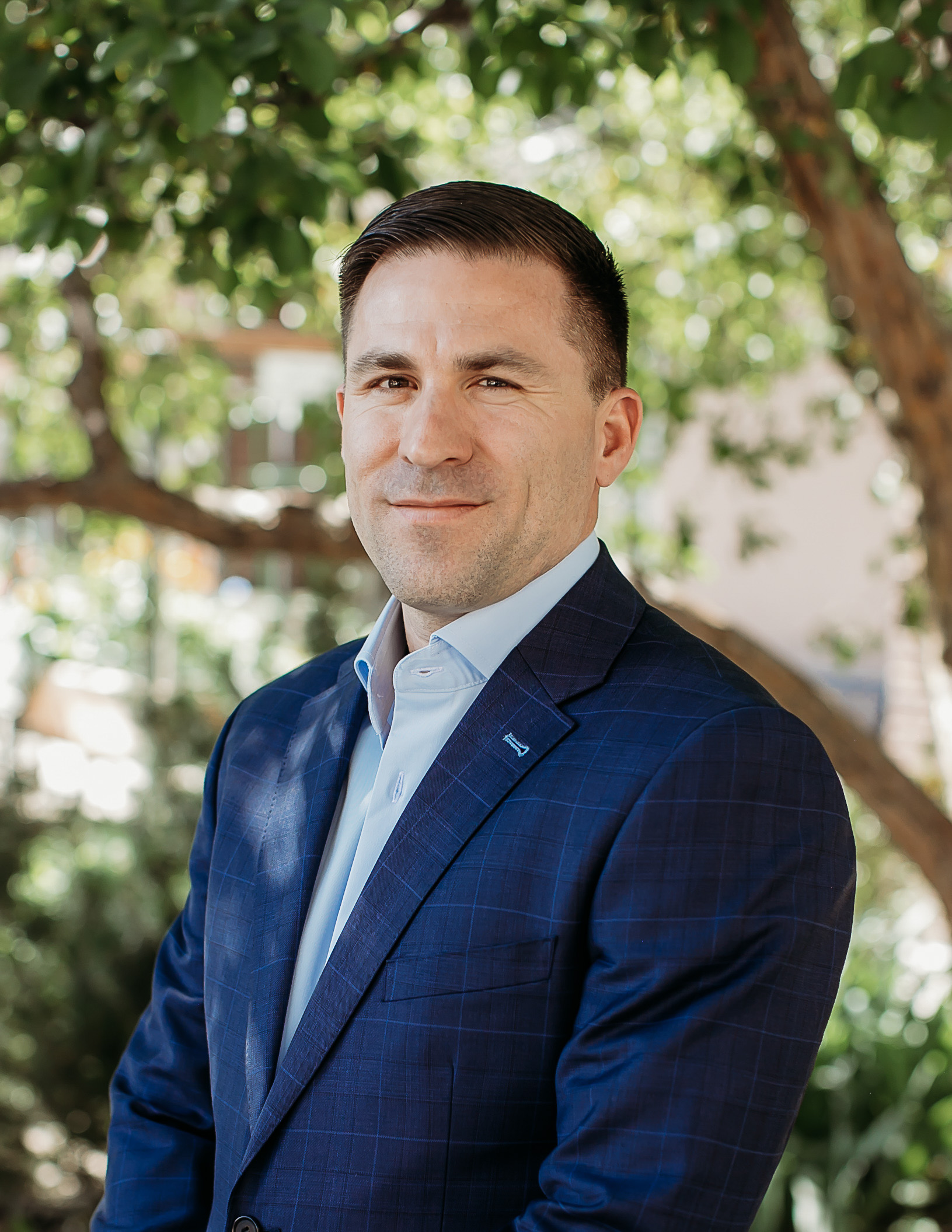Matthew C. Douglas, Esq.
Matthew C. Douglas, Esq.
Senior Director

Matt Douglas, Senior Director, joined Accruit's team of 1031 exchange subject matter experts in 2021. Matt has broad experience, specializing primarily in the area of “title-parking” transactions like Reverse and Improvement or Build-to-Suit Exchanges, which are structurally very different from a typical Forward Exchange. Matt has an aptitude for structuring such deals, and explaining their often-thorny substantive considerations. His client base is diverse, ranging from mom-and-pop investors to publicly traded Real Estate Investment Trusts (REITs). It’s not unusual for Matt to personally handle close to 100 parking transactions in a given year.
Matt Douglas is an experienced attorney who joined Accruit in 2021. Before moving into the 1031 exchange business, Matt spent 10 years practicing criminal and commercial litigation in Chicago, taking many different kinds of cases to trial. Much of his practice during that time also consisted of representing clients in residential and commercial real estate transactions, and, as a result, he understands the nuance of real estate deals in a way that’s invaluable to his role in the exchange business.
Since joining Accruit, Matt has developed broad subject-matter expertise, in particular in the area of “title-parking” transactions, which are structurally very different from a typical Forward Exchange, and commonly include Reverse and Improvement or Build-to-Suit Exchanges. Indeed, Matt spends most of his time structuring such deals, and explaining the often-thorny substantive considerations that arise as a consequence. His client base is diverse, ranging from mom-and-pop investors to publicly traded Real Estate Investment Trusts (REITs). It’s not unusual for Matt to personally handle close to 100 parking transactions in a given year.
Further, Matt’s portfolio of deals includes every iteration of parking transaction there is, from Safe-Harbor Reverse Exchanges and Forward Improvement Exchanges in accordance with IRS Revenue Procedure 2000-37, to more complicated, longer-term parking arrangements outside the safe-harbor and under what’s often called a “Bartell” theory in reference to a court case of the same name. Of particular interest to Matt are Related Party Leasehold Improvement structures, and the increasingly common scenario where an Exchanger already owns property and wishes to build improvements on it using exchange value. He also deploys the lesser-used strategy of parking the Relinquished Property when a particular fact pattern calls for it.
Matt also advises on other complex exchange issues, including: “drop and swap” scenarios where a partnership owning real property must reorganize in some fashion before or after a 1031 Exchange to qualify for nonrecognition treatment, the effect seller financing (i.e. carryback notes) has on an exchange, avoiding prohibited Related Party transactions, and how to best structure multi-property, program-style exchanges for companies trading in and out of large inventories of single-family rental properties. He also has considerable experience facilitating 1031 Exchanges involving California property, and is familiar with the heightened level of scrutiny involved in deals within the California Franchise Tax Board’s jurisdiction.
In addition to advising clients on these and other topics on a daily basis, Matt also educates other members of the 1031 Exchange industry on parking exchanges, presenting at the industry’s annual conference in collaboration with other colleagues, and he is a frequent panelist and lecturer at various tax and real estate industry events. He enjoys the intellectual challenge that 1031 Exchange fact patterns present, and finds nothing more professionally satisfying than solving the complicated puzzles that routinely arise in his 1031 exchange practice.
Since joining Accruit, Matt has developed broad subject-matter expertise, in particular in the area of “title-parking” transactions, which are structurally very different from a typical Forward Exchange, and commonly include Reverse and Improvement or Build-to-Suit Exchanges. Indeed, Matt spends most of his time structuring such deals, and explaining the often-thorny substantive considerations that arise as a consequence. His client base is diverse, ranging from mom-and-pop investors to publicly traded Real Estate Investment Trusts (REITs). It’s not unusual for Matt to personally handle close to 100 parking transactions in a given year.
Further, Matt’s portfolio of deals includes every iteration of parking transaction there is, from Safe-Harbor Reverse Exchanges and Forward Improvement Exchanges in accordance with IRS Revenue Procedure 2000-37, to more complicated, longer-term parking arrangements outside the safe-harbor and under what’s often called a “Bartell” theory in reference to a court case of the same name. Of particular interest to Matt are Related Party Leasehold Improvement structures, and the increasingly common scenario where an Exchanger already owns property and wishes to build improvements on it using exchange value. He also deploys the lesser-used strategy of parking the Relinquished Property when a particular fact pattern calls for it.
Matt also advises on other complex exchange issues, including: “drop and swap” scenarios where a partnership owning real property must reorganize in some fashion before or after a 1031 Exchange to qualify for nonrecognition treatment, the effect seller financing (i.e. carryback notes) has on an exchange, avoiding prohibited Related Party transactions, and how to best structure multi-property, program-style exchanges for companies trading in and out of large inventories of single-family rental properties. He also has considerable experience facilitating 1031 Exchanges involving California property, and is familiar with the heightened level of scrutiny involved in deals within the California Franchise Tax Board’s jurisdiction.
In addition to advising clients on these and other topics on a daily basis, Matt also educates other members of the 1031 Exchange industry on parking exchanges, presenting at the industry’s annual conference in collaboration with other colleagues, and he is a frequent panelist and lecturer at various tax and real estate industry events. He enjoys the intellectual challenge that 1031 Exchange fact patterns present, and finds nothing more professionally satisfying than solving the complicated puzzles that routinely arise in his 1031 exchange practice.
